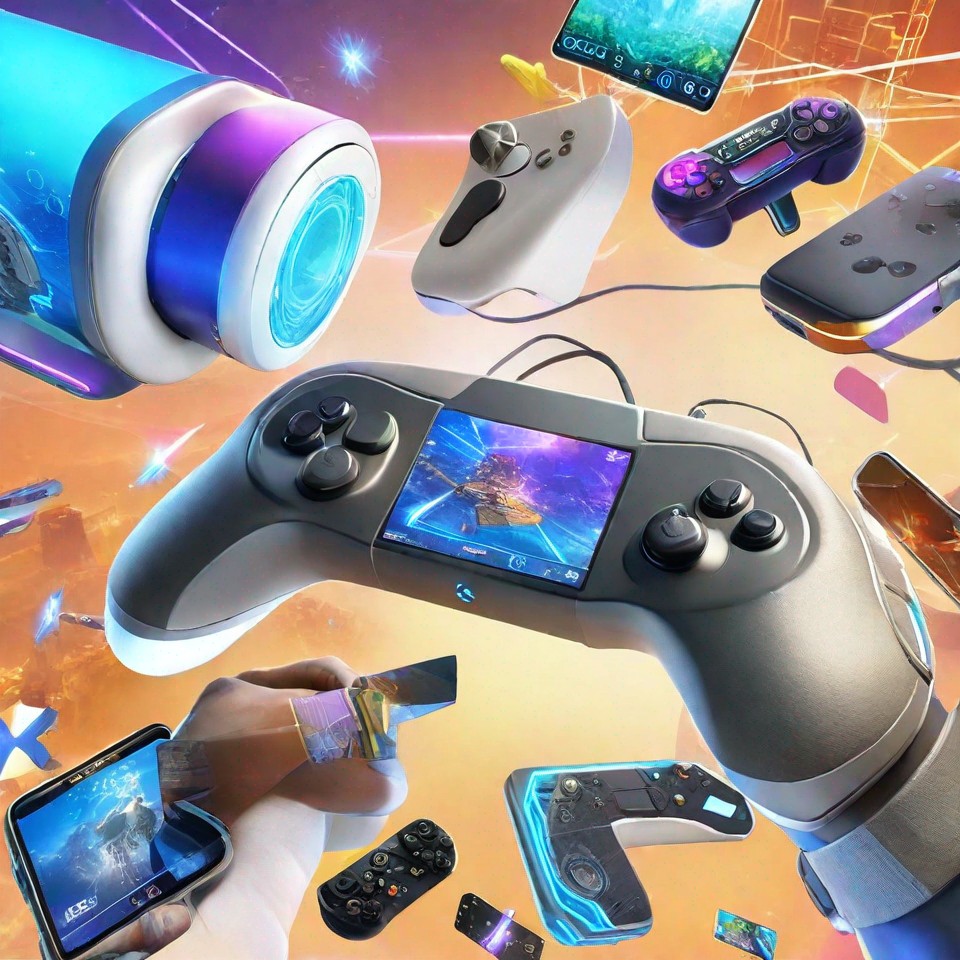Current Situation: The Rise of Cross-Platform Gaming
The success of games like Genshin Impact has highlighted the viability of mobile-to-console transitions. Originally launched as a mobile game, Genshin Impact quickly became a global sensation, amassing millions of players across multiple platforms, including consoles and PCs. This cross-platform success is not an isolated incident; it represents a growing trend where mobile games are designed with scalability in mind, allowing them to be easily ported to more powerful hardware without sacrificing quality.

Case Study: Genshin Impact
Genshin Impact serves as a prime example of how mobile games can successfully transition to consoles. Released by miHoYo, the game was initially designed for mobile devices but was simultaneously launched on PC and consoles. The developers utilized a free-to-play model with gacha mechanics, attracting a wide audience. The game’s success across platforms demonstrates that mobile games can offer experiences comparable to traditional console titles, challenging the long-standing perception that mobile gaming is inherently inferior【8†source】【9†source】.
Economic Implications: Revenue Streams and Market Expansion
The economic implications of this trend are profound. The mobile gaming market was valued at $89.25 billion in 2021, and its expansion into consoles could unlock new revenue streams for developers and publishers. As mobile games transition to consoles, they tap into a new audience that may prefer playing on larger screens with more precise controls. This cross-platform approach also encourages players to invest in in-game purchases across multiple devices, further boosting revenue.
Expert Opinion
Industry experts suggest that the convergence of mobile and console gaming could lead to a more unified gaming ecosystem, where developers create games that seamlessly function across platforms. This could result in a more sustainable revenue model, as players are no longer restricted to a single device and can enjoy a consistent gaming experience regardless of their platform【8†source】.
Social and Cultural Impact: Shifting Perceptions and Gaming Accessibility
The expansion of mobile games to consoles has the potential to shift cultural perceptions of gaming. Historically, mobile games were often dismissed as casual or inferior compared to console and PC games. However, as mobile games like Genshin Impact prove their worth on more powerful platforms, this stigma is eroding. This shift could lead to greater acceptance of mobile gaming as a legitimate form of entertainment, opening the door for more diverse game genres and experiences.
Moreover, this trend enhances gaming accessibility. Mobile games are typically designed to be more user-friendly and accessible to a broader audience. As these games become available on consoles, they could attract non-traditional gamers who may have been intimidated by more complex console titles. This inclusivity could foster a more diverse gaming community and encourage developers to create games that appeal to a wider demographic【9†source】.

Political and Regulatory Considerations: Cross-Platform Challenges
The expansion of mobile games to consoles raises several political and regulatory challenges. One of the primary concerns is data privacy, particularly in regions with strict data protection laws. Mobile games often collect vast amounts of user data, and as these games transition to consoles, developers must ensure compliance with the regulations of different jurisdictions.
Additionally, the cross-platform nature of these games could complicate content regulation. Different platforms have varying standards for what content is acceptable, and developers must navigate these differences carefully to avoid legal issues. The global nature of mobile gaming also means that developers must be aware of cultural sensitivities and local regulations when designing games for international markets.
Historical Precedent
The challenges of cross-platform gaming are not new. In the past, developers have faced similar issues when bringing PC games to consoles or adapting console games for international markets. These experiences offer valuable lessons for today’s developers as they navigate the complexities of mobile-to-console transitions【8†source】.
Environmental Impact: Sustainability and Resource Use
The environmental impact of expanding mobile games to consoles is a critical consideration. Consoles typically consume more power than mobile devices, and as more players transition to console gaming, the industry’s overall energy consumption could increase. However, this trend also presents an opportunity for innovation in sustainable gaming practices.
Developers and hardware manufacturers can mitigate the environmental impact by optimizing games for energy efficiency and designing consoles with sustainability in mind. Additionally, the growing popularity of digital downloads over physical media reduces the environmental footprint associated with game production and distribution.
Potential Solutions
To address these concerns, the gaming industry could adopt practices such as using renewable energy for data centers, promoting energy-efficient hardware, and encouraging players to adopt more sustainable gaming habits. These initiatives could help minimize the environmental impact of the industry’s growth【9†source】.

The Role of Innovation and Technology: Bridging the Quality Gap
Innovation and technology play a crucial role in the successful transition of mobile games to consoles. Advances in cloud gaming, for instance, allow players to stream high-quality games on any device with minimal latency. This technology could bridge the quality gap between mobile and console gaming, enabling more seamless cross-platform experiences.
Future Scenarios
Looking ahead, we can expect more mobile games to be designed with cross-platform compatibility in mind. This approach not only broadens the potential audience for these games but also encourages developers to push the boundaries of what mobile games can achieve. As technology continues to evolve, the line between mobile and console gaming will likely blur even further, leading to a more integrated gaming ecosystem.

Conclusion: The Future Trajectory of the Gaming Industry
The expansion of mobile games to consoles represents a significant shift in the gaming industry, with far-reaching implications for developers, players, and the market as a whole. As the quality gap between mobile and console gaming narrows, we can expect to see more mobile games making the leap to consoles, challenging traditional perceptions and reshaping the industry landscape.
In the long term, this trend could lead to a more unified and accessible gaming experience, where players can enjoy their favorite games across multiple platforms without compromise. However, this evolution also presents challenges, from regulatory and environmental concerns to the need for innovation in game design and technology.
Ultimately, the future trajectory of the gaming industry will be shaped by how developers, players, and regulators respond to these challenges and opportunities. As mobile games continue to expand their reach, they will play an increasingly important role in the gaming ecosystem, driving the industry forward into new and exciting territories.







3 Comments